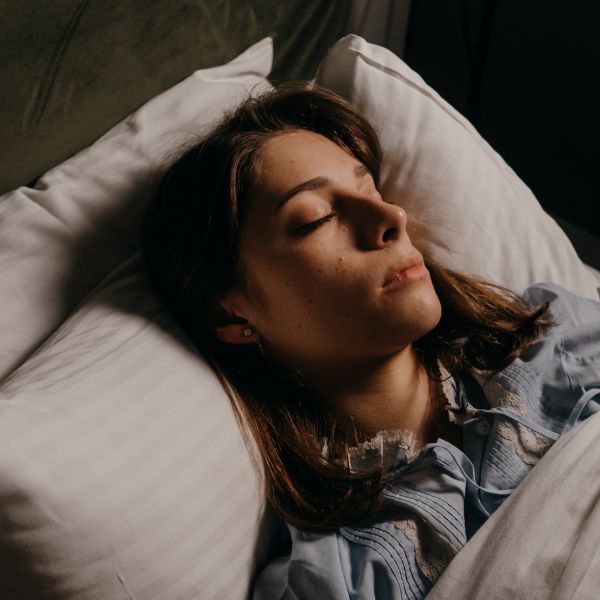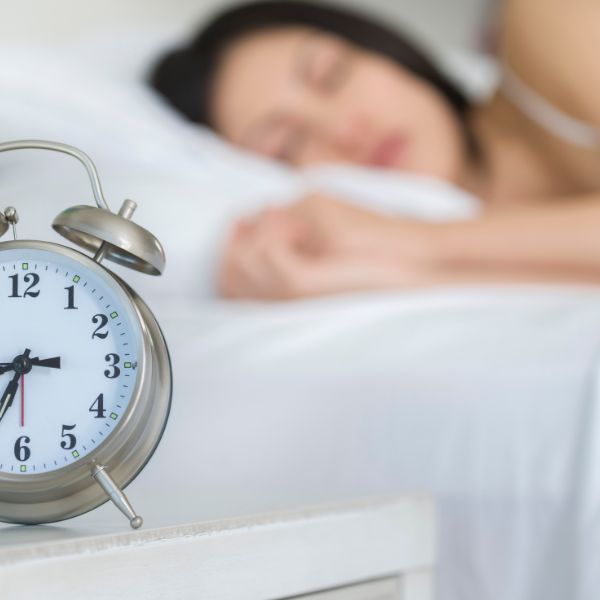Beat Insomnia the Easy Way!
Are you tired of tossing and turning in bed, counting sheep, and still unable to fall asleep?
Insomnia can be a frustrating and exhausting experience that affects your overall well-being. But what if I told you there’s a fast-track solution in Northern Ireland that helps you achieve restful sleep without medication or lengthy therapy sessions?
Introducing Fast Track Hypnosis – the latest breakthrough in treating insomnia. In this blog post, I will explore how Alan Gilchrist, Northern Irelands Top Hypnotherapist utilises Fast Track Hypnosis to help his clients beat insomnia and enjoy sweet dreams every night.
What is Insomnia?
Insomnia is a sleep disorder that can make it difficult to fall asleep, stay asleep, or both. People with insomnia often feel tired during the day and may have trouble concentrating or focusing on tasks. Insomnia can be short-term (acute) or long-term (chronic).
Acute insomnia lasts for less than a month and is usually caused by something stressful, such as a job loss or a death in the family. Chronic insomnia lasts for more than a month and can be caused by underlying health conditions, such as depression or anxiety. It can also be caused by medications, chronic pain, or other sleep disorders.

People with insomnia often have trouble functioning during the day. They may feel drowsy and have difficulty concentrating. They may also have trouble with memory and decision-making. Insomnia can lead to irritability and moodiness. It can also cause problems in relationships and at work or school.
Why Do We Get Insomnia?
There are many reasons why people may suffer from insomnia. Some of the most common reasons include stress, anxiety, depression, and chronic pain. Insomnia can also be caused by certain medications, medical conditions, and lifestyle choices.
Stress is one of the most common causes of insomnia. When we are stressed, our bodies release cortisol, a hormone that makes us feel alert and awake. This can make it difficult to fall asleep and stay asleep.
Anxiety can also cause sleep problems. When we are anxious, we may worry about things that have happened during the day or that might happen in the future. This can make it hard to relax and fall asleep.
Depression is another common cause of insomnia. People who are depressed may have trouble sleeping because they are preoccupied with negative thoughts or have difficulty regulating their moods. Depression can also lead to changes in sleep patterns, such as sleeping more during the day and less at night.
Chronic pain can also disrupt sleep. When we hurt, our bodies release chemicals that make us feel alert and awake. This can make it hard to fall asleep or stay asleep for long periods of time.
Certain medications can also cause insomnia. Medications such as stimulants, antidepressants, and blood pressure medications can all interfere with sleep. If you think your medication is causing insomnia, talk to your doctor about changing your dose or switching to a different medication altogether.
The Impact of Insomnia
The impact of insomnia can be far-reaching and debilitating. Insomnia can lead to poor concentration and decreased productivity at work or school, irritability, and increased risk of accidents. It can also lead to depression and anxiety.
Fast Track Hypnosis to Help With Insomnia
If you’re struggling to get a good night’s sleep, you might be wondering if Fast Track Hypnosis could help. Fast Track Hypnosis is a unique form of therapy that uses relaxation techniques to induce a state of hypnosis, or deep relaxation. This state can be helpful in treating insomnia and other sleep disorders.
During hypnosis, your body is relaxed and your mind is more open to suggestions. Expert Hypnotherapist Alan will make suggestions that are designed to help you relax and fall asleep. These suggestions may include visualisations of peaceful scenes or breathing exercises.

Improving Your Sleeping Habits
While the causes of insomnia can be varied and complex, Fast Track Hypnosis can be an effective way to address many of the underlying issues that can lead to sleepless nights. By working with Alan, you can learn techniques to relax your mind and body, release any pent-up anxieties or stressors, and reframe negative thoughts or beliefs that may be keeping you up at night.
In addition, Fast Track Hypnosis can help you develop healthy sleep habits and routines, and teach you how to better manage any underlying conditions that may be contributing to your insomnia. With regular practice, these techniques can help improve your sleep quality and quantity over time, so you can finally get the restful night’s sleep you deserve.
Benefits of Fast Track Hypnosis for Insomnia
If you’re one of the millions of people who suffer from insomnia, you know how frustrating and debilitating it can be. You may have tried all sorts of things to get a good night’s sleep, but nothing seems to work.
There are many potential benefits of Fast Track Hypnosis for insomnia, including:
- improved sleep quality
- reduced stress and anxiety
- increased feelings of relaxation
- improved ability to fall asleep and stay asleep
- reduced dependence on sleep medication
How Does Fast Track Hypnosis Help?
During the sessions for insomnia, you will be guided into a state of deep relaxation where your subconscious mind is more open to suggestion. Alan will then use special therapeutic techniques to help you overcome any negative thoughts or beliefs that are keeping you from sleeping soundly.
Tips to Reduce Insomnia
If you suffer from insomnia, you may find that making some simple lifestyle changes can help you get a better night’s sleep. Here are a few additional tips to help you reduce insomnia:
- Create a relaxing bedtime routine and avoid watching television or working on the computer in bed. Instead, try reading or listening to calm music before sleep.
- Exercise regularly, but not right before bedtime. Physical activity can help improve sleep quality, but exercising too close to bedtime can make it harder to fall asleep.
- Avoid caffeine late in the day and limit alcohol consumption. Both of these substances can interfere with sleep.
- Make sure your sleeping environment is dark, quiet, and comfortable. A cool room temperature is also ideal for sleeping.
- Establish a regular sleep schedule and stick to it as much as possible. This means going to bed and waking up at the same time every day, even on weekends.
There are many benefits to hypnotherapy, but one of the most appealing is that it can be done in just a few sessions. That means you can quickly get relief from your insomnia and start enjoying restful sleep once again.
Got a question for Alan, want to book an appointment or find out more information?
Call Alan on 02890 333303, email [email protected]
Or visit his web sites:

